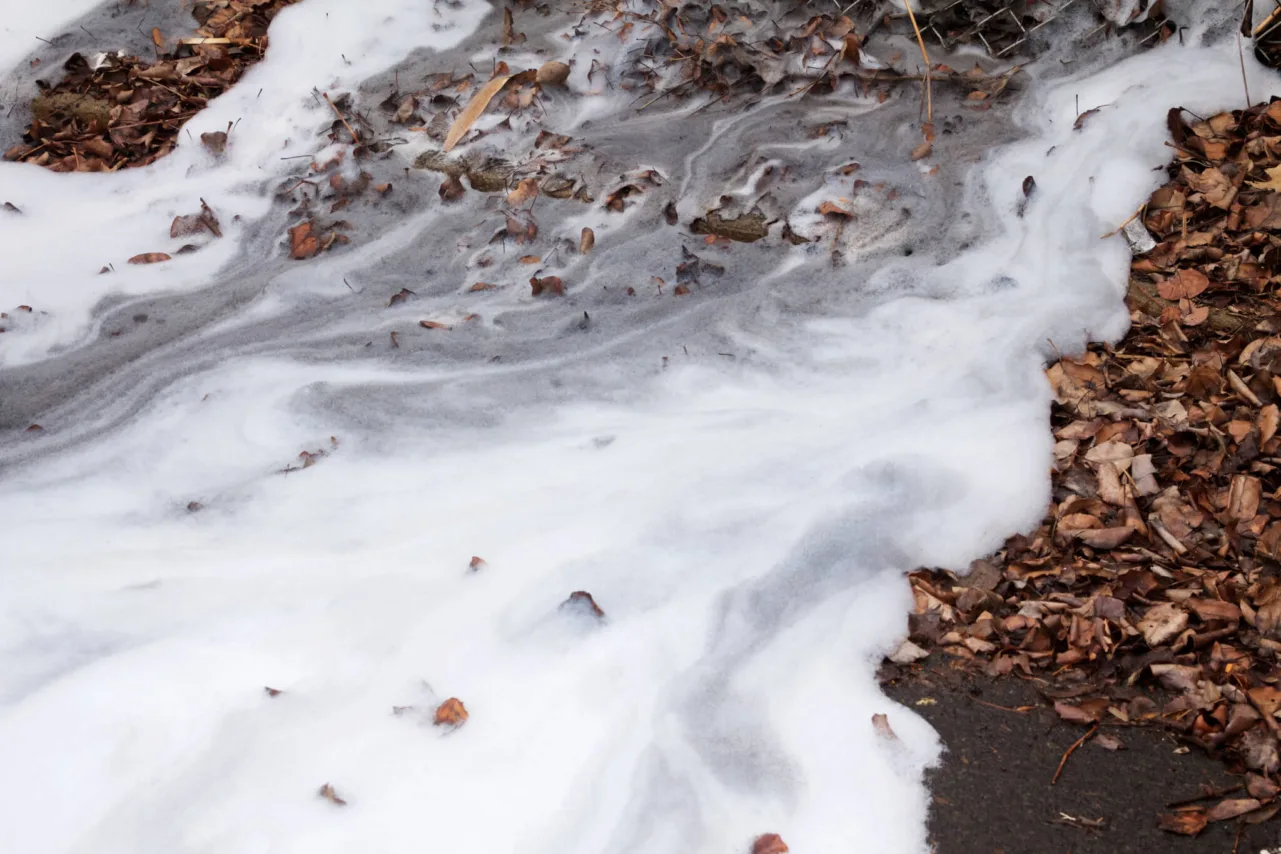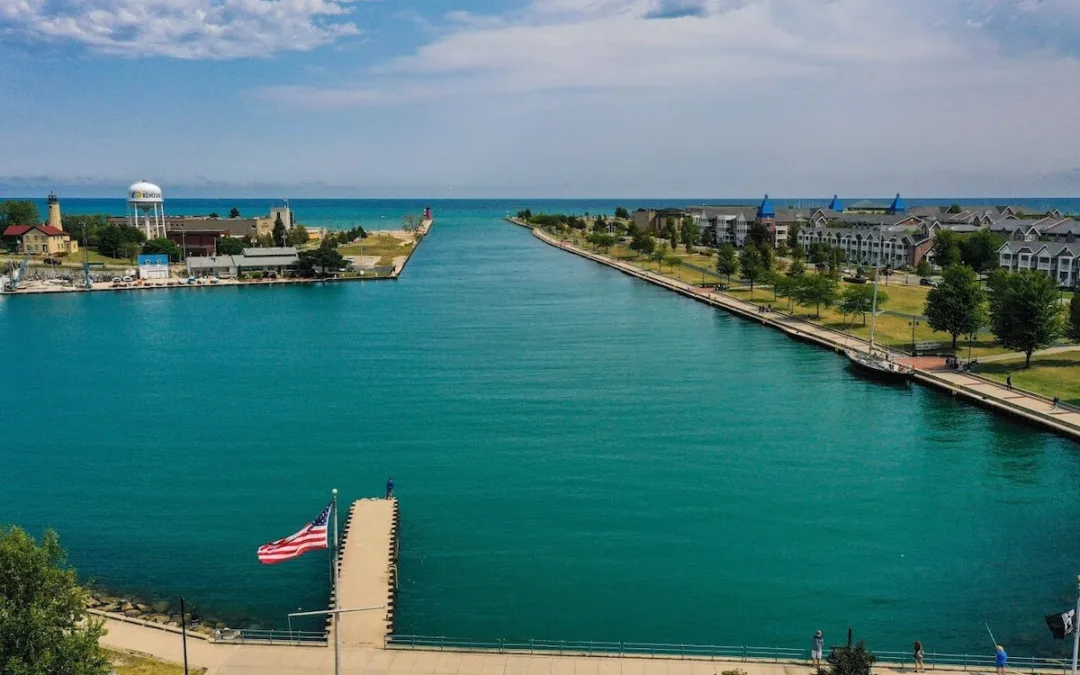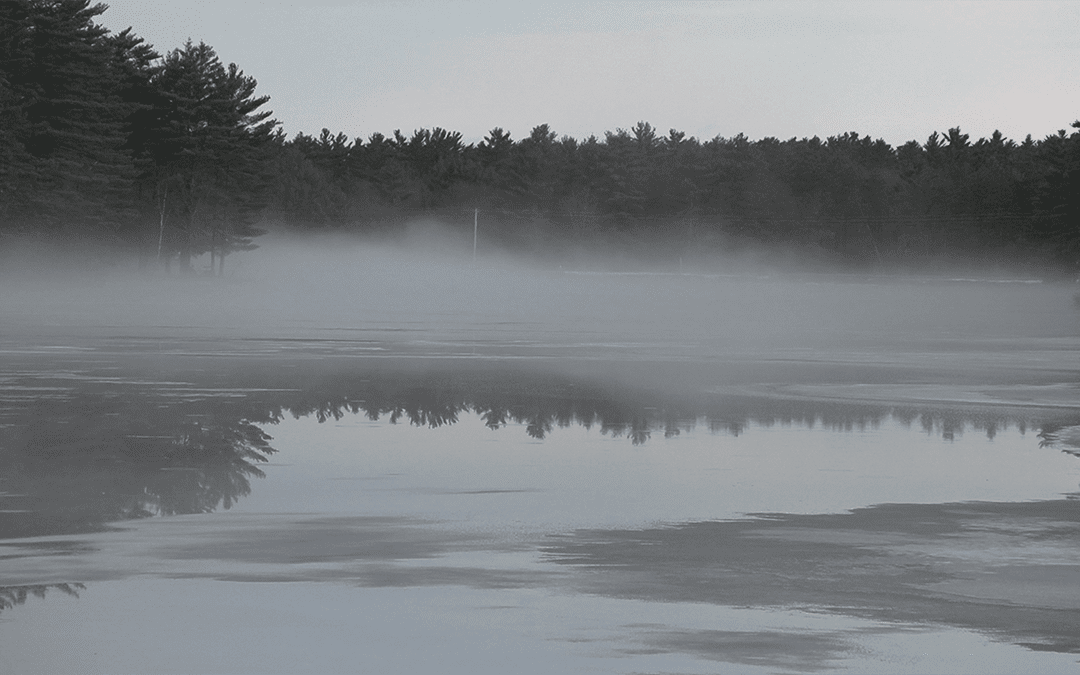
#image_title
#image_title
Doug Oitzinger argues the city has failed to hold JCI/Tyco, which is responsible for severe PFAS contamination in Marinette, accountable for the pollution.
Marinette Alderman Doug Oitzinger admitted that he was in a bad mood on Wednesday.
The Friday before, a special City Council meeting had posted and he learned—for the first time—that the city planned to move forward with an agreement that allowed Johnson Controls International (JCI)/Tyco to build a groundwater filtration system to remove PFAS (per- and polyfluoroalkyl substances) in his district on the public right-of-way.
PFAS are a group of man-made chemicals commonly found in products like firefighting foam and stain-resistant sprays that do not break down naturally and have been linked to medical conditions such as low birth weights, cancer, thyroid hormone disruption, and immune system issues.
JCI/Tyco discovered in 2013 it had for years been releasing the toxic contaminants through firefighting foam testing, but the company did not alert those affected for four years, and only briefly mentioned the contamination in a 2,300-page report to the Wisconsin Department of Natural Resources (DNR) in 2016. The filtration system is supposed to remove some—but not all—PFAS from a waterway to reduce the amount of chemicals draining into Green Bay.
A JCI/Tyco statement said the system “is based on years of investigation about how and where the PFAS traveled from our Fire Technology Center (FTC) after Tyco notified [Wisconsin] DNR that we found PFAS in the groundwater outside of the FTC in Marinette in 2016.”
Letting the agreement skate through the city council on a Wednesday afternoon (when many members of the public could not attend) to Oitzinger represented another lost opportunity to hold JCI/Tyco accountable and make right some of the damage caused by JCI/Tyco dumping harmful contaminants for years.
‘Pattern of Behavior’
When JCI/Tyco had presented the proposed filtration system to the city council earlier, Oitzinger said the company had promised to do public outreach before bringing a formalized proposal to the city. But Oitzinger spent his weekend speaking with area residents—whose yards are going to be torn up and have electronic control panels installed—and learned that no one knew about the proposal and no one had heard from JCI/Tyco.
“I fought and fought and fought to get some kind of public meeting with neighborhoods that were affected,” Oitzinger told UpNorthNews.
A spokesperson from JCI/Tyco said the company “has been exhaustive in our efforts to communicate with the community about the [water filtration system] while also moving as quickly as possible to deliver this large-scale remediation solution,” including distributing fact sheets, conducting media interviews, and making a presentation at a DNR listening session, as well as the presentation before the Marinette City Council in early June.
When he learned about the planned filtration system, Oitzinger saw it as an opportunity to make the city to recoup for the additional expenses that have accrued from cleaning up the PFAS that JCI/Tyco dumped.
“This is our opportunity to get whole on some things where they—and pardon my language—screwed us the last time,” Oitzinger said. “And [the city] didn’t do it. They didn’t negotiate something that was favorable to the city.”
RELATED: A Quarter of Eau Claire’s Municipal Wells Have PFAS Contamination, City Announces
The company dumped PFAS-contaminated waste into Marinette’s wastewater system until March 2018. Even today, all the city’s pipes and tanks are still contaminated and will continue to be for years to come.
The process of treating sewage creates a byproduct known as biosolids. Organic biosolids are dumped on farm fields for fertilizer or in landfills. But because of the high PFAS content of the city’s biosolids, they can no longer be dumped locally and instead have to be shipped to a special facility in Oregon.
Initially, shipping that waste across the country cost the city $3 million. JCI/Tyco built a facility to reduce the volume of the sludge to make it more affordable to transport, so now it costs the city $125,000. But before PFAS, it only cost the city $90,000 to dispose of its biosolids.
Oitzinger suggested that the city charge JCI/Tyco $250,000 to use the city’s right-of-ways for the filtration system, which would cover the added cost of shipping the biosolids over the next decade.
His proposal was not considered.
“There’s always the concern that if you get too hard-nosed with the company they’d pack up and leave,” Oitzinger said. “Even though they said they’d never do that.”
Two aldermen were absent during Wednesday’s meeting, so only seven were present; four voted for the agreement with JCI/Tyco, which will allow it to build a system that will be in place for up to 50 years.
“This is a pattern of behavior on the part of the city,” Oitzinger said. ”They don’t learn from past behavior. they forget past behavior.”
The Past is Never Past
At the same time the Marinette City Council was taking that vote, the Wisconsin Department of Natural Resources (DNR) held its first of two virtual information sessions on monitoring and mitigation of PFAS at the sites where the biosolids were dumped in Marinette and Peshtigo.
The agency is conducting a program to monitor, collect and dispose of surface water foam, which contains tens of thousands of parts per trillion of PFAS chemicals. In June, it also started excavating highly contaminated soils that also had to be shipped to the waste management facility in Oregon.
Within the investigation area, the DNR contacted 500 households offering to test their well water, of which 415 agreed. Of those, 85 had no PFAS detected, 298 had some, but less than maximum recommended environmental standard (21.9 to 273 parts per trillion), and 32 had PFAS levels that are considered hazardous.
The DNR said it would provide water to households with hazardous PFAS levels for one year, during which time it would communicate with them about a long-term solution.
JCI/Tyco has done its own testing, and provided water and filtration systems to households with undrinkable water due to PFAS contamination.
“We then took responsibility for this PFAS and proactively began the process of investigating the site and cleaning it up,” a spokesperson said in a statement to UpNorth News.
But Oitzinger argued JCI/Tyco has fought and downplayed its role in the PFAS situation for years and finally taken those steps as a last resort.
“They wait until they’re caught or there’s penalties,” Oitzinger said.
He has printed and hanging on the wall in his office, “JCI/Tyco game plan: deny, delay, deflect, deceive.”
“[JCI/Tyco] should be apologizing all over themselves. They should be throwing money in every which direction,” Oitzinger said. “There are consequences to this, and [JCI/Tyco] has not addressed those in the way they should.”
After the city council meeting, Oitzinger decided to take a walk to calm down before participating in the second DNR public hearing that evening. But he was less than a block from his home when he saw PFAS foam floating in a ditch.
He made his way to the beach, where he saw PFAS foam washing up on the shore for blocks.
“I can’t ever let my grandchildren swim in that water ever again,” Oitzinger said. “At the end of the day, it’s going to be here forever. It can’t be undone.”
Politics

Biden administration bans noncompete clauses for workers
The Federal Trade Commission (FTC) voted on Tuesday to ban noncompete agreements—those pesky clauses that employers often force their workers to...

Opinion: Trump, GOP fail January 6 truth test
In this op-ed, Milwaukee resident Terry Hansen reflects on the events that took place on January 6, the response from Trump and other GOP members,...
Local News

Readers Poll: Top Bowling Alleys in Wisconsin
Looking for the best bowling in Wisconsin? Look no further! Our readers have spoken in our recent poll, and we have the inside scoop on the top...

8 Wisconsin restaurants Top Chef judges are raving about
Top Chef’s 21st season is all about Wisconsin, and on-screen, it’s already apparent that the judges feel right at home here. But, while filming in...



